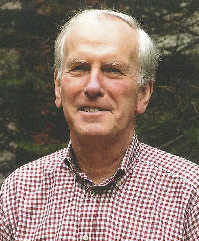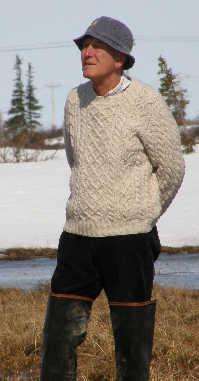Robert L. Jefferies Scholarship
The Robert L. Jefferies Scholarship in Ecology & Evolutionary Biology was established by the Friends and Family of Professor Robert Lenthall Jefferies. It is awarded on the basis of academic merit or financial need to graduate student(s) in the Department of Ecology and Evolutionary Biology.
Robert L. Jefferies

Bob Jefferies was one of the world’s leading Arctic scientists and global change biologists, being particularly recognized as a major figure in waterfowl research. Over 50 years of professional activity, Professor Jefferies published more than 100 scholarly articles, and delivered hundreds of lectures on his research to University audiences, research conferences and colloquia.
His ecological research centred on the Hudson-James Bay system, especially the region surrounding Churchill, Manitoba, where his studies of nesting Snow Geese helped to make this one of the best-understood northern ecosystems worldwide. While Bob was an unusually broad-minded scholar, he was recognized internationally as the dean of goose-plant interactions in Arctic environments, a field of study he almost single-handedly created. Bob’s research documented the consequences of changing climate and wildlife populations on the region, and his efforts played a central role in setting North American wildlife management policy and the establishment of Wapusk National Park.
Bob’s work on goose populations at high latitude was instrumental in demonstrating long-distance consequences of modern human activity in a biological world. Since the 1950’s, high-input agriculture has created an abundance of grain, some of which is left on fields in the American Midwest following harvest. This excess grain has allowed geese populations to explode due to an abundance of feed in their wintering grounds. Upon migration to the Arctic estuaries during the breeding season, the high numbers of geese have overgrazed the estuaries, leading to ecological collapse and desertification in the Hudson Bay lowlands and along the Arctic coast. As they migrate, the geese carry large amounts of nutrients from the wintering grounds to high latitudes, leading to major changes in water quality and aquatic food webs of the Arctic. Bob’s work has become a model case for how modern human activity has far ranging impacts through interactions with migrating animals.

Because of the importance of his work, Bob Jefferies was nominated to serve as one of the Canadian representatives to the Intergovernmental Panel on Climate Change (IPCC). With other IPCC members, Bob shared the Nobel Peace Prize in 2007.
At the University of Toronto, Bob was a well-known lecturer in the biology curriculum, teaching global change ecology and general ecology to over 32,000 students in his 35 years of service at the University. His former graduate students now occupy positions of influence throughout the Canadian ecological establishment, where they play instrumental roles in developing national policy in ecology and environmental sciences.
To his students and colleagues, he stood out as a gentleman of unusual grace and generosity
Support Us
Help our efforts to educate and train the future designers of environmental sustainability.
